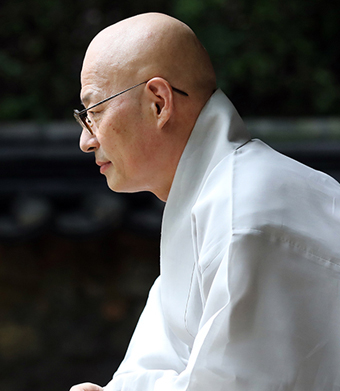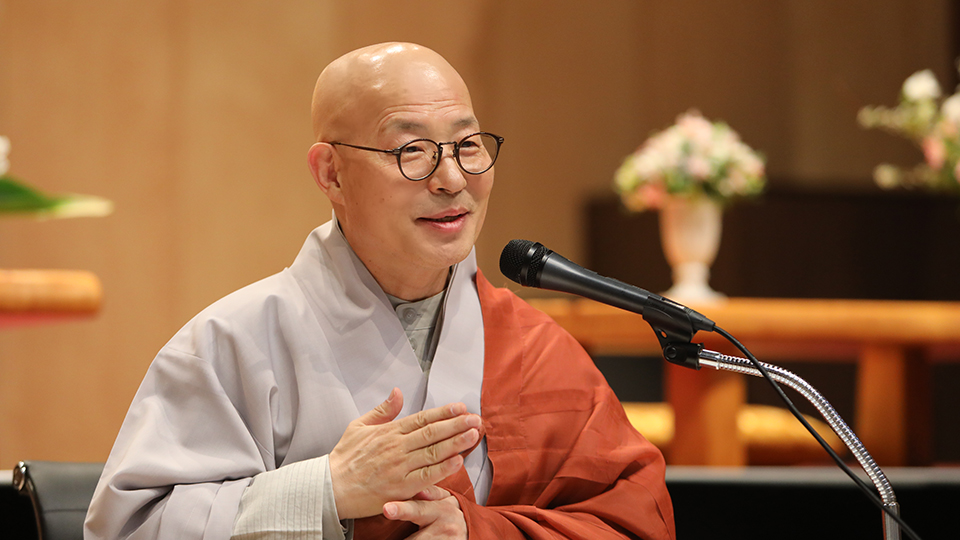Jogye Order of Korean Buddhism
 Steeped in 1,700 years
Steeped in 1,700 yearsof history and tradition of
Korean Buddhism,
the Jogye Order of Korean
Buddhism is the largest
Buddhist order in Korea. With Shakyamuni Buddha’s teachings as its foundation, the Jogye Order has three principal tenets: to directly point to one’s mind; to see into one’s own true nature and become a buddha; and to propagate the dharma to save all beings. The foundational scriptures of the Jogye Order are the Diamond Sutra and the teachings of generations of patriarchs. With Seon meditation as its core practice, the Jogye Order—in order to establish a tradition of syncretic Buddhism—has embraced other practices such as reading sutras, chanting buddhas’ names, and reciting mantras. In particular, the Jogye Order preserves the tradition of angeo (lit. peacefully dwelling). These are biannual three-month intensive Seon practice retreats in summer and winter, in which approximately 2,000 monks and nuns participate.
Korean Buddhism is recognized globally for its unique blending of traditional cultural heritage and natural heritage, Ganhwa Seon practice, and temple food. The natural, cultural, and religious resources preserved by Korean Buddhism include Korea’s national parks and Korea’s natural scenic beauty. The Templestay program is an icon of Korean cultural tourism that provides a platform for global citizens to enjoy Korean Buddhist culture.
Korean cultural properties registered on the UNESCO World Heritage List are the pride of Korea and the world. These include: Haeinsa Temple’s Janggyeong Panjeon, the repositories for the Tripitaka Koreana Woodblocks; Seokguram Grotto and Bulguksa Temple; Sansa, Buddhist Mountain Monasteries in Korea; Yeondeunghoe (Lantern Lighting Festival), and Jikji, the second volume of Anthology of Great Buddhist Priests' Zen Teachings. The Jogye Order manages Buddhist cultural heritage properties, which comprises 60% of Korea’s cultural heritage. By inheriting traditional culture and developing it tailored to the modern age, the Jogye Order creates a new foundation through which humanity can share and enjoy the values embodied in Korean Buddhism.

The Jogye Order has proactively led activities to create and maintain harmony and peace with other religions in Korea, contributing to the establishment of a Korean society devoid of religious conflict. With insight and compassion, the Order has embraced the underprivileged, including senior citizens, the handicapped, temporary employees, and migrants. In this way it pursues social justice and fulfills its social responsibilities as a religious order. With its dynamic response to the important issues of modern society, including environmental crises, the Jogye Order sincerely works to bring purity and harmony to the world and put the hearts of all people at ease.
Despite differences in nationalities, ideologies, and religions, humanity is united as one in their aspiration for peace and happiness. The Jogye Order will faithfully pass on the 1,700-year history of Korean Buddhism, and establish itself as a friend and benefactor to all based on the spirit of compassion and peace.
Most Ven. Jinwoo
The 37th President of the Jogye Order of Korean Buddhism


